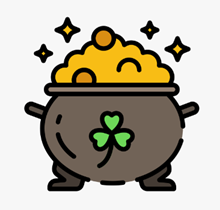Ronnie Robinson, a prominent figure in Roller Derby history, was born on September 25, 1938, in New York. Despite being the son of the renowned boxing legend Sugar Ray Robinson, Ronnie chose a different path, setting his sights on becoming a Roller Derby skater.
Early Career and Rise to Prominence
Trained under the guidance of Buddy Atkinson, Sr. at the New York training school, Robinson made his debut with the 1958 NY Chiefs. He swiftly showcased his talent as a jammer, honing both his jamming and blocking skills that soon made him a standout performer.
Throughout his early years, Robinson skated for various teams, including the Westerners, Red Devils, Braves, Clippers, and Cardenales, solidifying his reputation as a versatile skater adept in both jamming and blocking.
Coaching and Later Career
In 1968, Ronnie Robinson stepped into coaching with the N.E. Braves, achieving notable success by guiding his team to a league Championship in 1969, triumphing over the Bay Bombers. His journey continued with the expansion of Roller Derby, leading him to join the Chicago Pioneers in 1971-72 under Gil Orozco’s coaching.
Following Roller Derby’s decline, Robinson signed with the Los Angeles Thunderbirds in 1974 but retired midway through the season. Yet, retirement was brief for Ronnie, who returned to the track with the New York Braves of the Roller Stars league in 1975. He later coached the New York Skychiefs in the World Skating Derby.
Find out how Ronnie Robinson attacked Charlie O’Connell
Ronnie Robinson’s Impact and Contributions
Beyond his accomplishments as a skater and coach, Ronnie Robinson’s influence extended throughout Roller Derby’s community. His dedication and leadership elevated the sport, setting standards for skill and sportsmanship.
Robinson’s strategic insight and skills, both as a skater and coach, left an indelible mark on the sport’s evolution.
Ann Calvello: roller derby pioneer’s legacy.
Remembering Ronnie Robinson
Ronnie Robinson’s legacy endures as a testament to his remarkable skating abilities, coaching prowess, and unparalleled leadership. His passing in 2001 marked the loss of a true icon, remembered for his grace, power, and leadership on the banked track.
Personal Insights and Contributions
Apart from his sporting achievements, Ronnie Robinson’s character and contributions off the track were equally remarkable. He was recognized for his advocacy for sportsmanship, fair play, and his commitment to mentoring younger skaters, contributing significantly to Roller Derby’s culture of camaraderie and respect.
A Tribute to Ronnie Robinson
Ronnie Robinson’s story is not just about his remarkable skills on the roller derby track or his coaching prowess; it’s a tale of determination, versatility, and enduring impact. Born into a family deeply entrenched in boxing history, Ronnie charted his unique path, showcasing his immense talent and versatility in Roller Derby.
From his early days as a standout jammer to his coaching stints and later comebacks, Robinson’s journey was marked by triumphs, resilience, and unwavering dedication. His strategic acumen, both as a skater and a coach, played a pivotal role in shaping the sport’s evolution.
Beyond his sporting achievements, Ronnie Robinson was a beacon of sportsmanship, camaraderie, and mentorship. His influence transcended the banked tracks, leaving an indelible mark on Roller Derby’s culture and community.
Robinson’s passing in 2001 marked the end of an era, but his legacy endures. He remains etched in the annals of Roller Derby history as an iconic figure whose grace, leadership, and commitment continue to inspire generations of skaters and enthusiasts alike.
Ronnie Robinson’s impact, both on and off the track, serves as a reminder of the enduring values of perseverance, sportsmanship, and passion. His story stands as a testament to the essence of Roller Derby—a sport not just of physical prowess but of resilience, spirit, and unwavering dedication.









